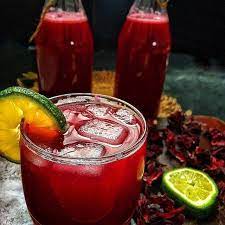
Members of the public have been cautioned against using locally brewed alcohol, akpeteshie, as preventive tool against contracting the coronavirus.
A statement issued and signed by Baffour Osei Akoto, Head of Public Relations, Centre for Plant Medicine Research (CPMR), expressed concern about social media postings alleging that alcoholic bitters can be a substitute for hand sanitizers in seeking to prevent the coronavirus infections.
But the Centre for Plant Medicine Research insists that “no herbal bitters or local gin could be a viable substitute for hand rubbing.”
“For a sanitizer to be effective in ridding the hands of coronavirus, sanitizers must have 60-95% alcohol by volume, and that alcohol content for bitters on the market is often less than 45%.”
“Thus, clearly, such bitters and their alcohol contents are inadequate as a sterilizing measure against COVID-19,” the statement added.
No evidence yet
The centre also said that no medicinal plant or herbal product or local gin has been proven to be efficacious against COVID-19.
“CPMR also wishes to place on record that no known medicinal plant, or herbal product or local gin has, at yet, been proven to be efficacious against COVID-19.
“As a research centre of excellence, however, we are engaging with our various partners and stakeholders, including the Ministry of Health and Traditional Medicine Practitioners, to explore research opportunities in the fight against COVID-19 using herbal medicine,” the statement said.
Preventive guidelines
The centre further advised the public to be mindful of false information, and also adhere to the Ghana Health Service guidelines regarding COVID-19.
The centre asked the public to observe basic measures such as frequent cleaning of hands with soap under running water or the use of alcohol-based sanitizers, covering cough with a bend of the elbow or tissue paper.
The statement said there is the need for “maintaining a distance of at least one meter from people coughing or sneezing, regular physical activities, regular intake of water and, lastly, ensuring personal hygiene.”
GPHA case negative
Meanwhile, the Ghana Ports and Harbours Authority (GPHA) has disclosed that a crew member aboard one of the vessels at the Tema port, who was suspected to be infected with COVID-19, has tested negative.
A statement signed by GPHA’s General Manager in charge of Marketing and Corporate Affairs, Esther Gyebi-Donkor, recounted that the crew member had showed signs of fever, cough, sore throat, periodic sweating and generally feeling unwell. The suspect, who also had headaches and temperature of 38.8, with pulse 127bpm, was on a ship which arrived last Friday.
The vessel was subsequently quarantined after the blood samples of the crew member were sent to the Noguchi Memorial Institute of Medical Research for testing.
“Firstly, the vessel was immediately ordered to be quarantined at anchorage. Our medical personnel, guided by Marine Operations staff, wore the requisite Protective Clothing and went on board the ship to take the temperature and blood samples of the sick crew member. The sample was subsequently taken to the Noguchi Memorial Institute for Medical Research for analysis,” the statement said.
It added: “At about 10.00 p.m, the results of the analysis were released by Noguchi and the sick crew member was declared negative of COVID-19. Upon receiving this good news and clearance from Noguchi, GPHA berthed the vessel around 12:15 a.m. on Monday and the sick person whose condition is currently stable is being treated for the requisite non-contagious ailment on board, prior to the vessel’s expected sail.”
Source: Daily Statesman








